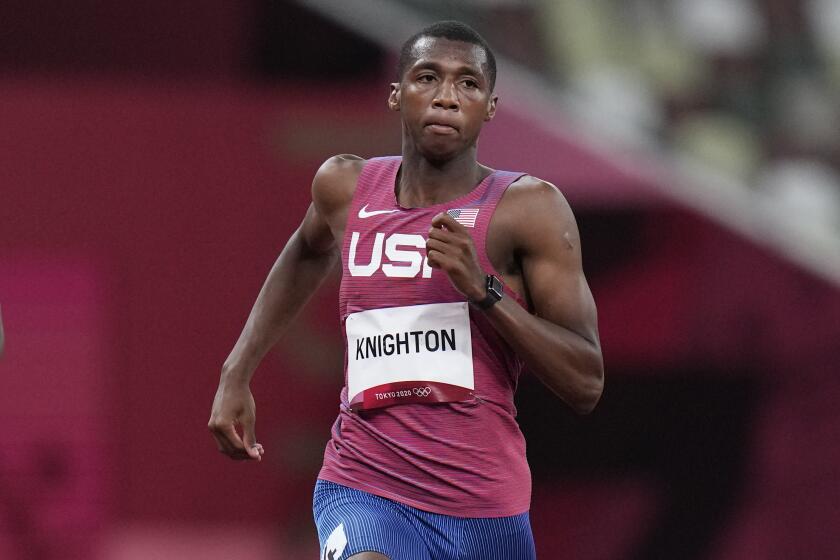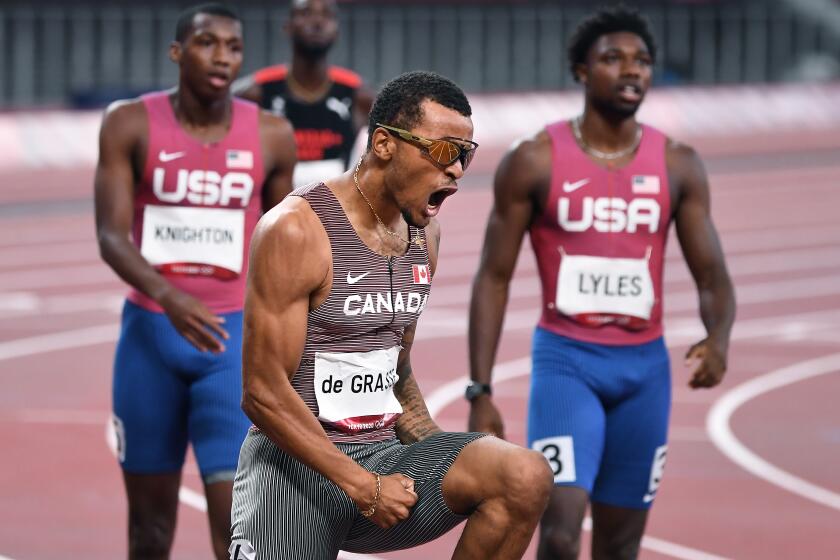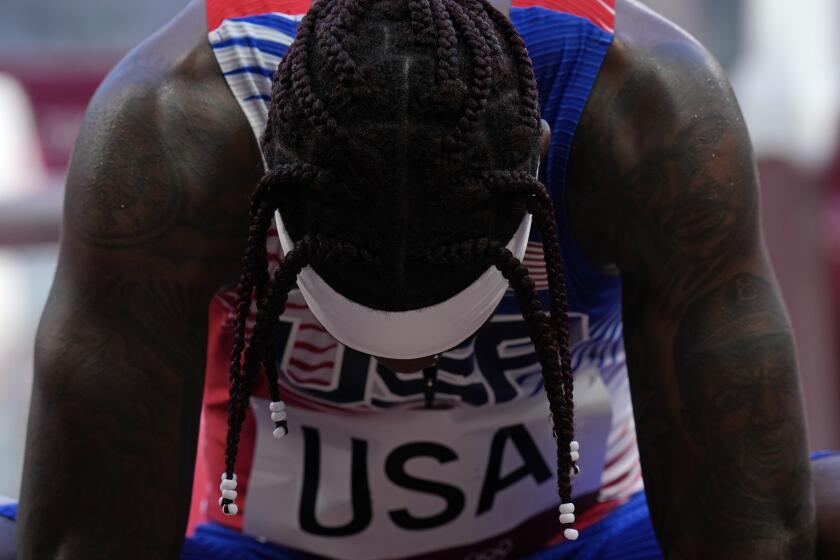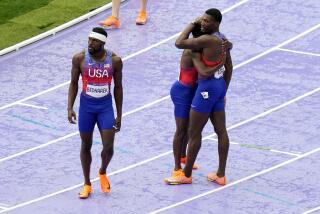Column: Michael Norman might still win Tokyo gold, but that won’t salvage his Olympics
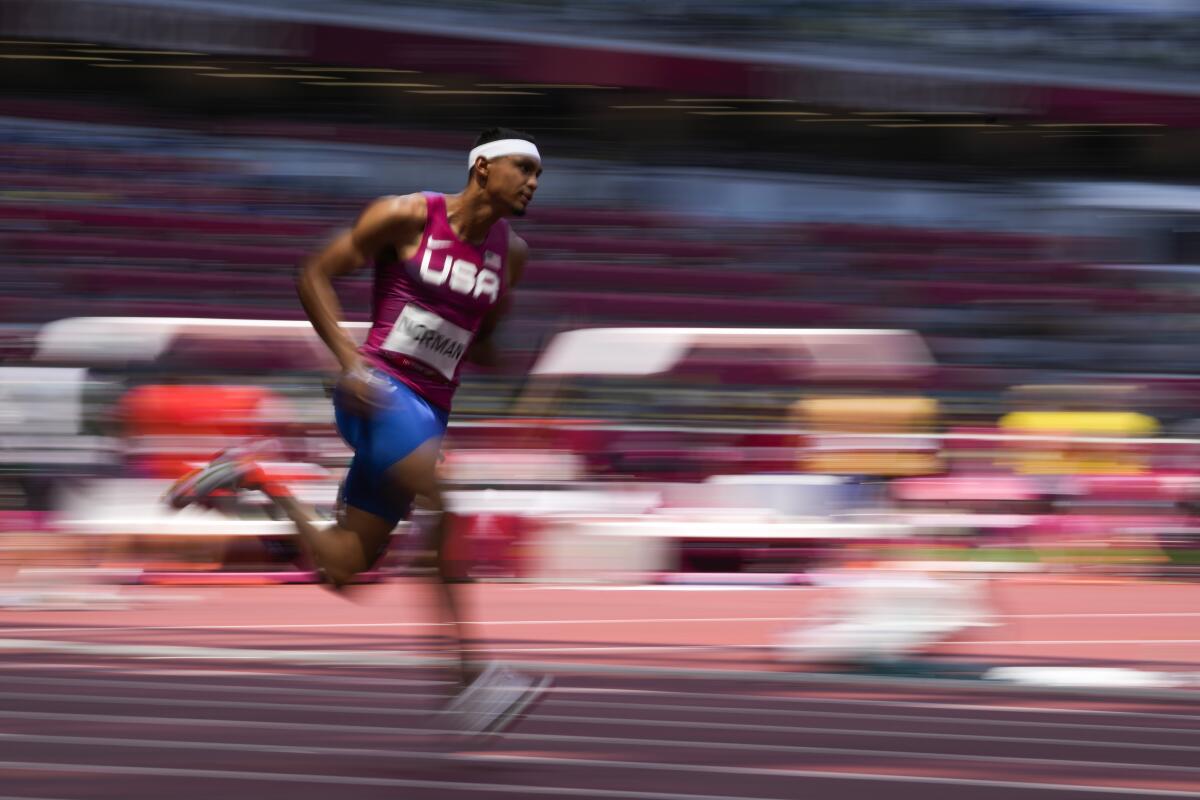
- Share via
TOKYO — Sports results are documented in absolute terms. So, regardless of whether Michael Norman is viewed as a choker or characterized in more charitable terms, the record will show that in the most important race of his life, he finished fifth with a time almost nine-tenths of a second slower than his personal best.
Norman didn’t offer an explanation for his 44.31-second disaster in the Olympic 400-meter final on Thursday night, whipping through the designated post-race interview zone without breaking stride or even looking up.
It’s a shame he didn’t run the second half of his race with similar purpose.
Without saying a word, the most disappointing athlete on the most underachieving American sprint team in recent history, simply vanished.
“I’m sure there was a lot of pressure on him,” said U.S. teammate Michael Cherry, who was fourth with a personal-best 44.21.
Erriyon Knighton, still only a teenager, finished fourth in the men’s 200 meters at the Tokyo Olympics on Wednesday, and his peers are impressed.
There was pressure because these were supposed to be Norman’s Games.
A state champion at Vista Murrieta High and national champion at USC, Norman was the world leader in the 400 in the two years before the pandemic. The 23-year-old also had a ready-made storyline, as his mother, the former Nobue Saito, is from the coastal town of Hamamatsu, about 150 miles southwest of Tokyo.
In 1989, Norman’s future mother became the first Japanese middle school girl to run 100 meters in less than 12 seconds. Earlier that year, she won a Junior Olympic national championship at the very stadium in which the track and field events were staged at these Games.
Bronze medalist Noah Lyles, who has suffered with depression, talks about his struggles and the need for others who need help to seek it out.
If coupled with a gold medal, the background could have gained Norman some commercial opportunities, which is why he was taking Japanese lessons last year.
Ironically, the area in which he failed was running.
Norman ran a world-leading 9.86 in the 100 last year to salvage a 2020 season that was basically wiped out by the coronavirus. The race confirmed his status as the Olympic favorite in the 400.
But Norman never looked right this year. He finished first at the U.S. Olympic trials but labored through the preliminary rounds, perhaps weighed down by an upper body that looked more muscular.
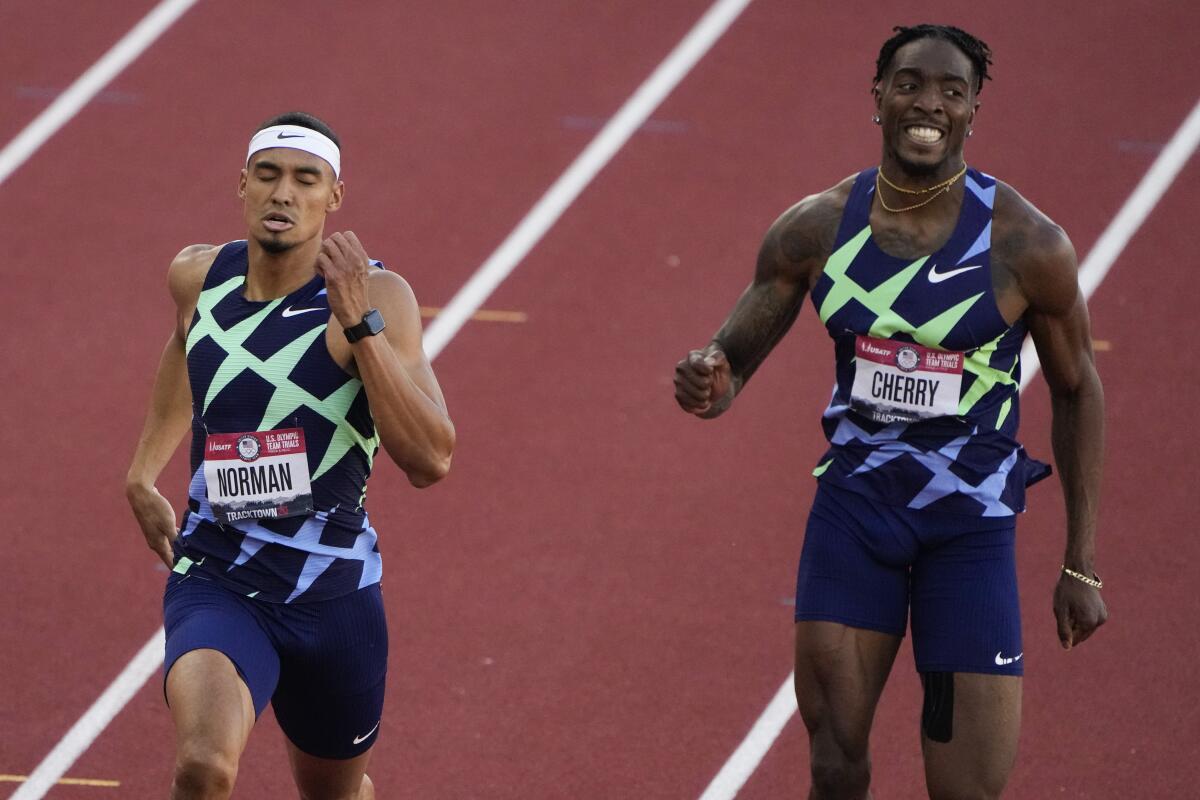
The uneven form continued in these Olympics, with Norman looking particularly sluggish as he finished second to Steven Gardiner of the Bahamas in the third of three semifinals. Norman posted a time of 44.52, which was only the fifth-fastest in the round. With the four middle lanes in the final reserved for the runners with the four fastest times, Norman drew a Lane 8 assignment, placing him second from the outside.
Starting ahead on the curve and unable to see his opponents behind him, Norman charged out of the blocks, immediately making up the stagger on the Lane 9 entrant, Christopher Taylor of Jamaica.
The U.S. men’s 400-meter relay team fails to make finals. But in field events, Ryan Crouser wins the shot put, and Katie Nageotte wins in pole vault.
“I knew Mike was going to push it,” Cherry said.
Halfway through the race, Norman looked as if an invisible bear had suddenly jumped on his back. Coming off the final turn, he was in sixth place.
Gardiner won in 43.85 seconds, which was slower than Norman’s personal best of 43.45 from 2019. Anthony Jose Zambrano of Colombia was second in 44.08, followed by Kirani James of Grenada in 44.19.
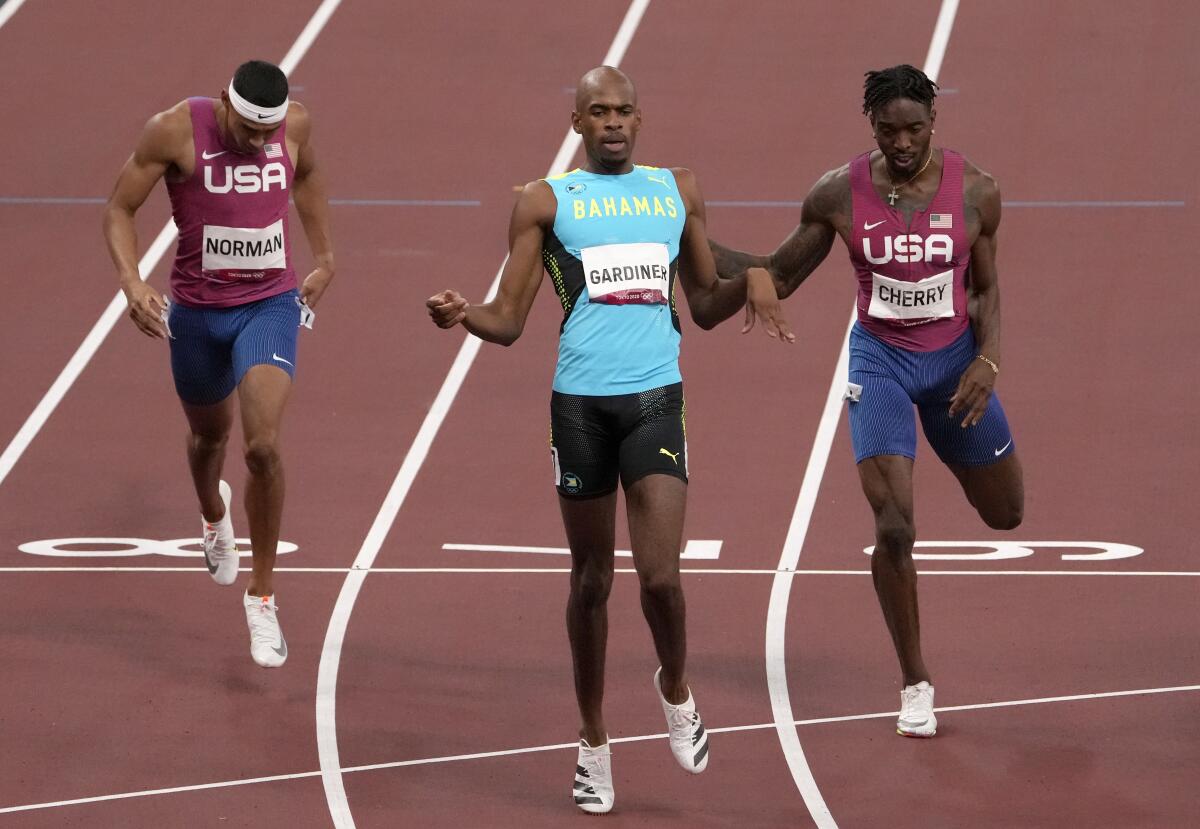
When Norman crossed the finish line, his shoulders noticeably slumped. He bent over, then squatted. James walked over and placed a hand on his shoulder.
As a sprint prodigy who won a gold medal in the 400 as a 19-year-old at the 2012 London Games, James understood the burdens Norman shouldered. Norman was also well-known as a teenager, having competed in the U.S. Olympic trials the summer after he graduated from high school.
“It is pressure, especially with social media,” James said. “The world is kind of smaller. Even for me, like 10 years ago, social media wasn’t what it is now. So, I think it’s just another extra obstacle that athletes have to deal with.”
However, James added, “He’ll be good. I’m not worried about Michael Norman.”
James’ endorsement won’t stop the social media chatter about Norman’s big-race credentials. At the world championships in 2019, Norman was nursing an injured hamstring and was physically worn down after his first season on the European track circuit. He failed to qualify for the final in the 400, for which he was the pre-meet favorite.
Norman could still be part of the 1,600-meter relay team that has a chance to win the only U.S. sprint gold at these Olympics, but that won’t salvage his reputation. He is defined by his place and time in the race he ran at the Olympic Stadium on Thursday night, and he will continue to be until he posts a different result on a similar stage.
He will have to wait for at least three years for the opportunity. The Paris Games are in 2024.
More to Read
Go beyond the scoreboard
Get the latest on L.A.'s teams in the daily Sports Report newsletter.
You may occasionally receive promotional content from the Los Angeles Times.

